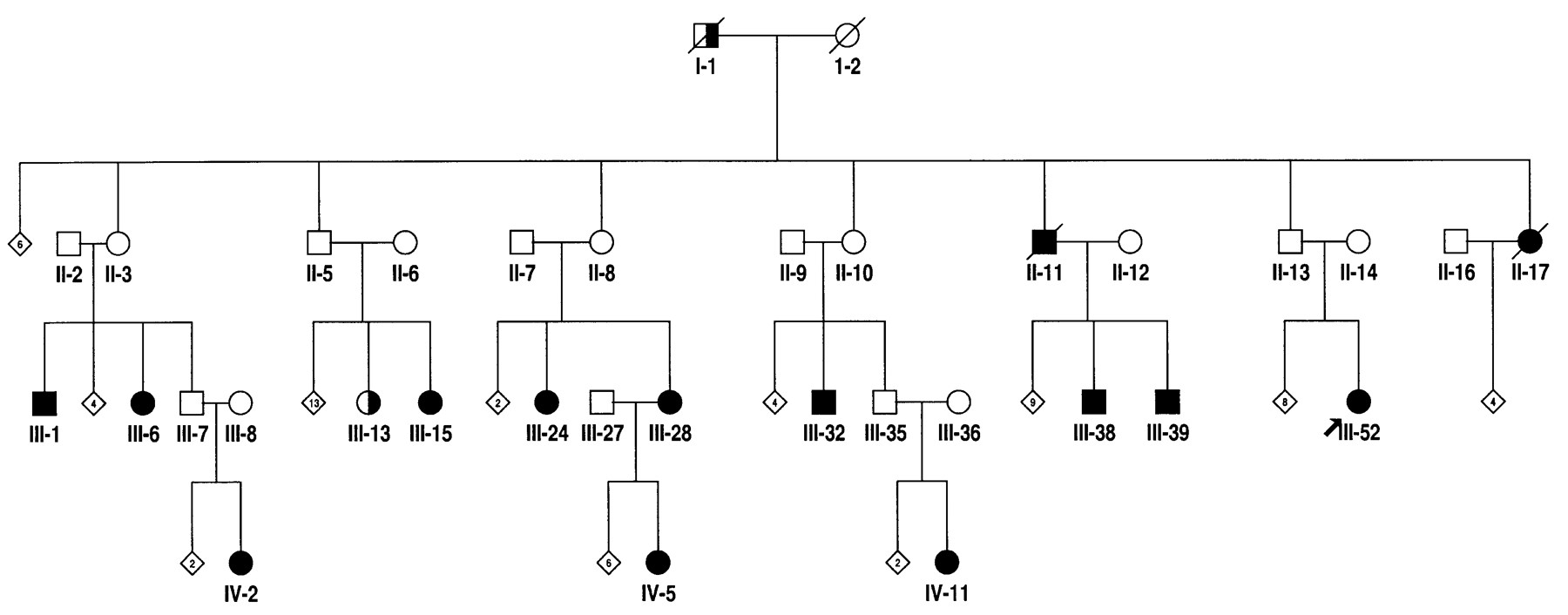Inheritance
Links:
The average person in the US a 1 in 750 chance of developing MS.
Relatives of people with MS (children, siblings, and nonidentical twins) have a 1 in 100 to 1 in 40 chance of developing MS.
Genese are important for determining MS, but environment plays a very large role. Other factors, such as exposure to germs and viruses, play a part in causing MS which is why many scientists say MS is not directly inherited. Genetic factors determine who is susceptible to the unknown outside trigger.
MS has no single gene which is responsible for causing the disease; however, an unlucky combination of several genes is inherited. Today, advances in molecular genetics and identification of families in which MS is prevelant in mulitple members (called "multiplex MS families") has allowed us to uncover genes susceptible to MS. To find these genes, scientists probe the DNA of white blood cells from these multiplex families and compare this DNA to healthy relatives in order to search for patterns or markers in the DNA code seen in the individuals with MS.
Twenty locations in the genome may contain genes that contribute to MS, but no single gene causes MS.
In March 2005, Serono Genetics Institute identified 80 genes involved in the inflammatory and neuro-degenerative pathways of MS. Among the genes confirmed in the inflammatory response were genes coding for the human leukocyte antigen (HLA). HLA genes are central to the immune response and are involved in recognizing infectious agents.
Two other genes involved in the neuro-degenerative pathway included Neuregulin (NRG1) and Presenillin 2. NRG1 allows protein to be secreted from glial cells and studies have shown this gene to have significant activity in experimental allergic ensephalitis (EAE) which is a model of MS. Presenillin 2 has been crucial in Alzheimer's disease and its presence confirms the neuro-degenerative etiology in MS.
Pedigree

A multigenerational family with multiple sclerosis. Diamond = offspring, gender not specified; open circle = female, not affected with multiple sclerosis; open square = male, not affected with multiple sclerosis; filled circle = female, affected with multiple sclerosis; filled square = male, affected with multiple sclerosis; partially filled square or circle = possible multiple sclerosis; diagonal line = deceased; arrow = proband. (http://brain.oupjournals.org/cgi/content/full/125/7/1474/AWF158F1)